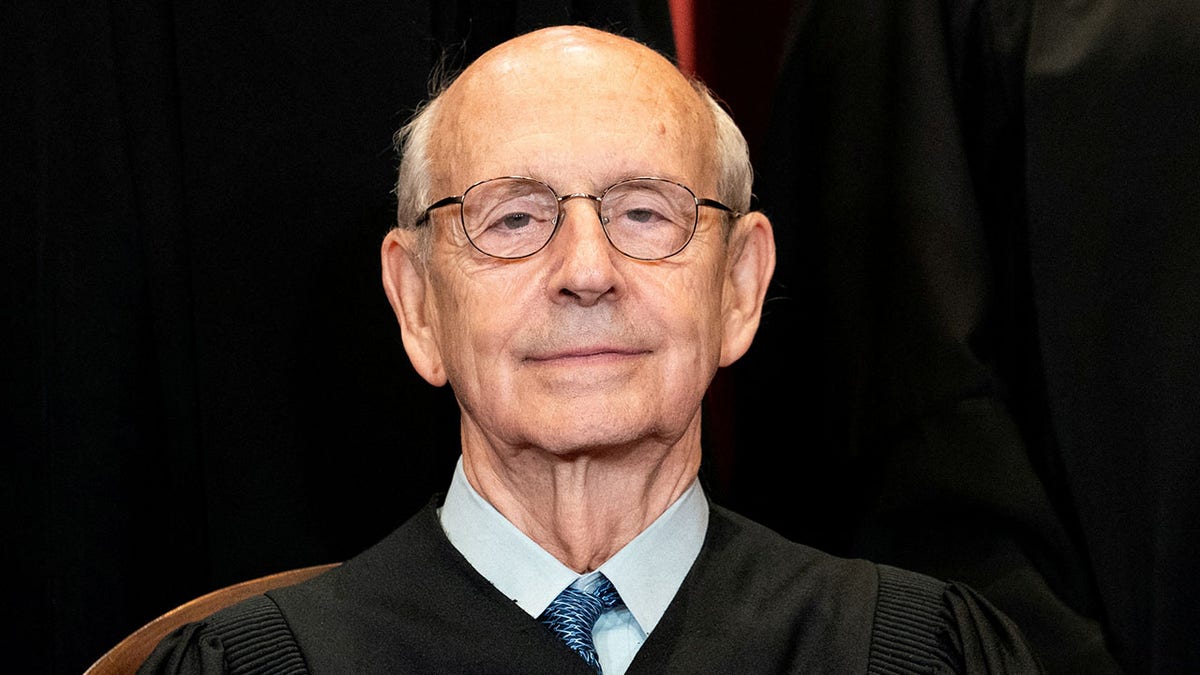Fox News Flash top headlines for January 27
Fox News Flash top headlines are here. Check out what's clicking on Foxnews.com.
Supreme Court Justice Stephen Breyer’s retirement comes at a time when a President Biden- and Democrat-controlled Senate will be able to replace him with another liberal jurist, but while this may seem like simply maintaining the court’s status quo, it could end up having a more far-reaching impact on the court for years to come.
While Breyer was by no means a swing vote on the court, his pragmatic approach to the law at times resulted in him siding with conservative colleagues in cases where other liberal justices might disagree.
SUPREME COURT JUSTICE STEPHEN BREYER TO RETIRE
For instance, Breyer sided with conservatives in a 2005 case involving the display of the Ten Commandments in a public park. While he had opposed such displays in other cases, Breyer distinguished this case from the others by noting that in this case the installation had been present for decades without controversy until the case had been brought. He also noted that in this situation the display had "not simply a religious message, but a secular message as well."

Associate Justice Stephen Breyer poses during a group photo of the justices at the Supreme Court in Washington, April 23, 2021. (Erin Schaff/Pool via REUTERS/File Photo)
Breyer said that in other cases where the court rejected displays of the Ten Commandments, circumstances were different. In one such case, the evidence showed a religious motivation, and in another it was at a public school, which Breyer said could have a more influential impact.
WHO COULD REPLACE SUPREME COURT JUSTICE STEPHEN BREYER?
Looking at the practical impact of the case, Breyer noted that removing the display could be more problematic than keeping it, as it might "lead the law to exhibit a hostility toward religion that has no place in our Establishment Clause traditions," and result in more clashes across the country.
In 2013, Breyer joined Chief Justice John Roberts and Justices Clarence Thomas, Samuel Alito and Anthony Kennedy – all appointed by Republicans – in Maryland v. King, in which the court upheld a law that allowed police officers to take DNA samples from people they arrest for violent crimes or burglaries.
A more liberal justice in a political climate where those on the left are increasingly against law enforcement might have a very different position on such a case.
Granted, with conservatives having a 6-3 majority, replacing the liberal Breyer with a more liberal new justice could only have so much of an impact, but it could be a significant incremental shift away from the right, especially if Democrats get to pick more justices in the future.
CLICK HERE TO GET THE FOX NEWS APP
In 2020, it was rumored that Thomas was considering retirement, although he denied this. Around that same time, conservative radio host Hugh Hewitt told listeners that his sources said Alito was considering stepping down.
Thomas and Alito are the two oldest members of the high court after Breyer. If either or both were to step down while Biden is in office it would allow Democrats to have an even greater influence over the court’s makeup – an effort that would begin now with Breyer’s replacement.







